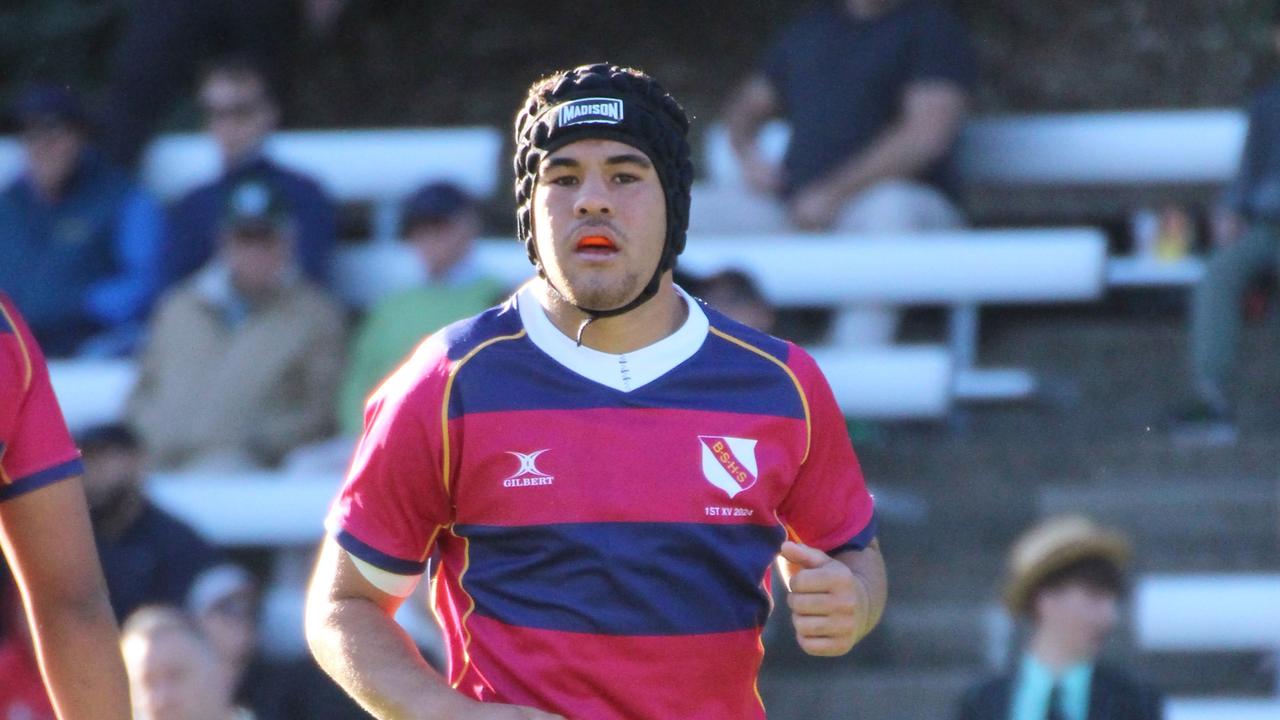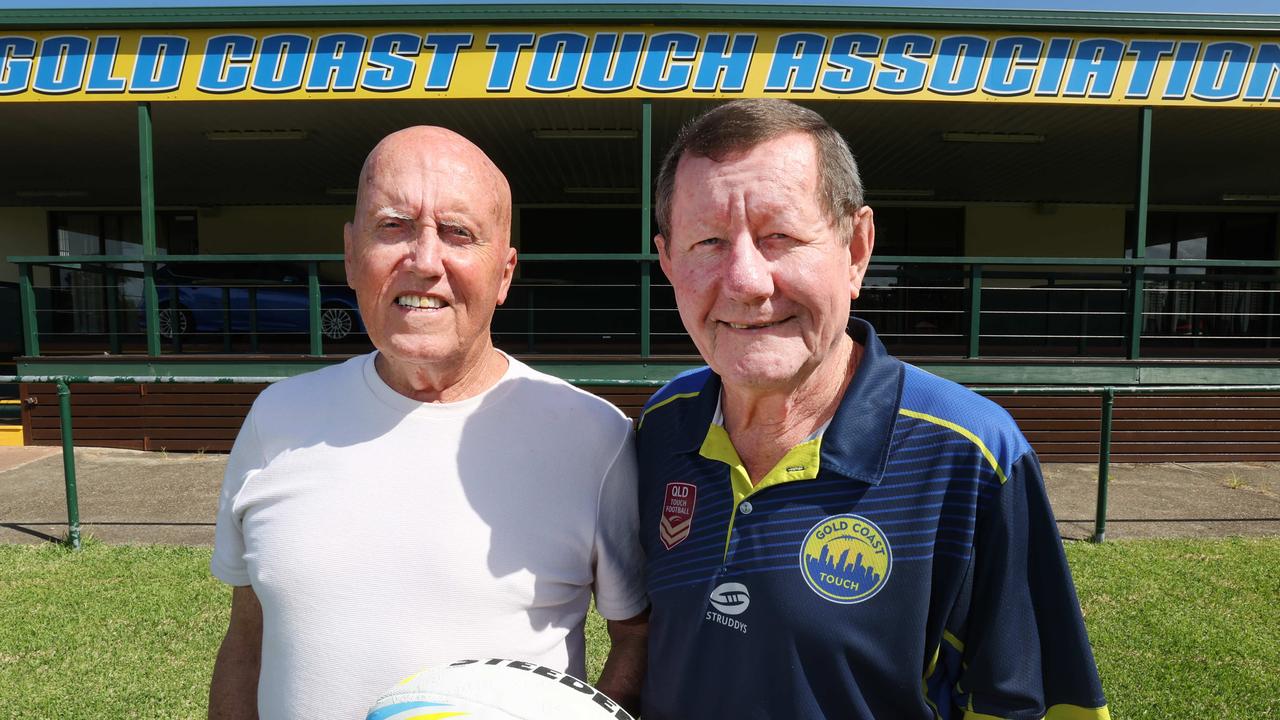Big Q&A with Queensland Reds star James O’Connor on rediscovering his love for the game
James O’Connor reveals how his promising rugby career was sent over the rails in a pursuit of hedonism that left him empty inside, how he found himself again and why he’s come home.
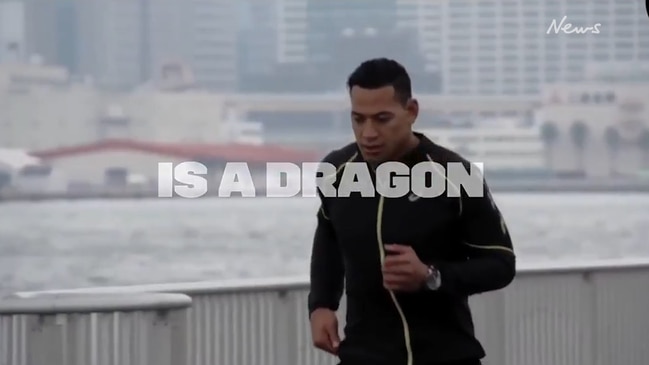
Rugby
Don't miss out on the headlines from Rugby. Followed categories will be added to My News.
Australian rugby’s most infamous party boy James O’Connor opens up to Nic Darveniza on the crushing emptiness that nearly drove his career to the brink and his fight to rediscover his love for the game.
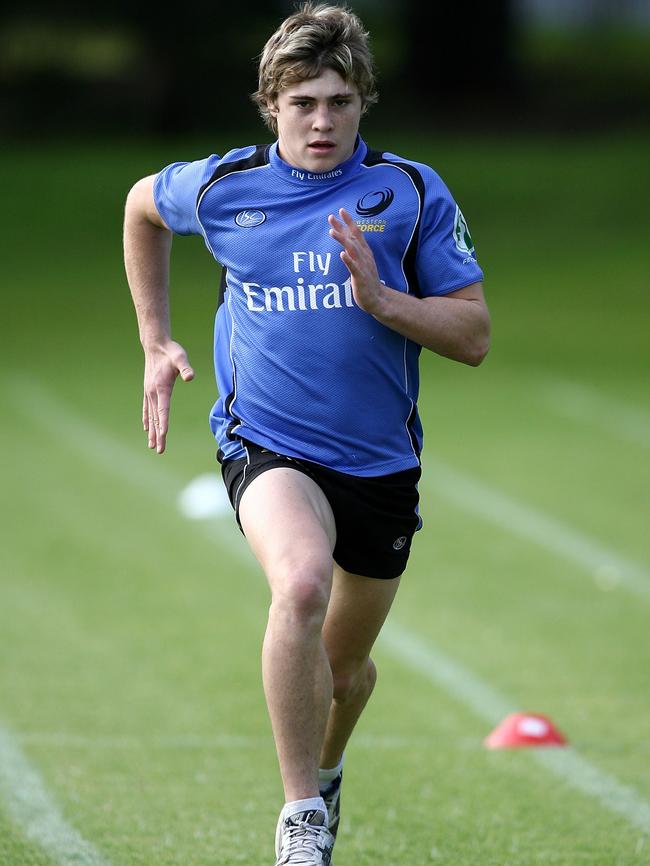
What kind of pressure did signing a professional contract at 17 place on you as a young man?
None at that age. It’s your passion, you want to follow that passion. It’s more when you get to the top and you achieve things that you think are going to define you. You play in a World Cup, and think ‘once I achieve that I’ll be at peace’. When I was around the age of 22 or 23 I’d experienced all these things I thought I’d get fulfilment from but there was nothing. There was nothing there. I had to go back to the drawing board and think, s---, without rugby, who am I? That was a big question for me.
Was the 2011 Rugby World Cup in New Zealand that tipping point for you?
I’d achieved everything I’d ever dreamt of but there was something missing. Nothing externally can fill you up, you have to turn inwards. Which was something that I didn’t do often because I was around people at the time where it was all about going out (partying). There was constant gratification, pleasure here, pleasure there. It’s not until you stop that you realise how jumbled your mind can be.
FULL DIGITAL ACCESS TO THE GOLD COAST BULLETIN: $1 FOR THE FIRST 28 DAYS
Take us inside your friendship with Quade Cooper and Kurtley Beale.
We were just always together. We played together, we lived together for six months of the year. They become like your brothers. We enjoyed the same pleasures and each other’s company. So we just stuck together. Going out to sushi, going out to the bars, shopping. But we never called ourselves the Three Amigos, other people did and it picked up so we just played around with it.
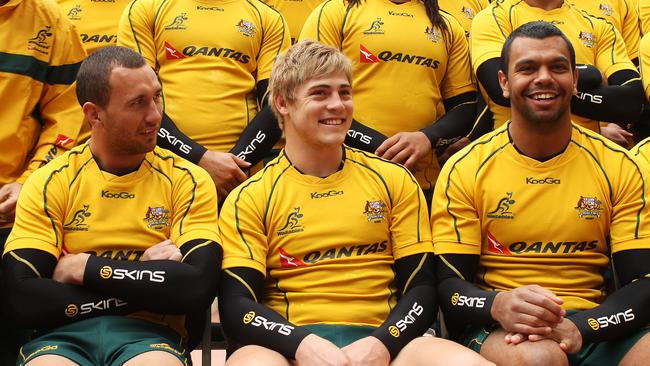
Did it take you leaving that friendship group behind to find yourself again?
Not at all. Each of us has been on our own journey as well. Our society is missing a step that tribes and other cultures, they actually have a ceremony and different trials for when a boy becomes a man. But here, what do we have? You look around, there are so many kids walking around in men’s bodies that never made that transition. I had to leave the Australian bubble to find out what made me tick. And it was a journey that took a lot longer than I thought it would.
What did you discover?
One of the big things was learning not to listen to your mind but to your heart. Everyone says how bad the ego is but it’s only a bad thing when it’s in control of your life. The Japanese talk about wearing three different masks: one in front of strangers, one to your close family, and one for how you see yourself. For me it was about not being able to distinguish between who the characters were. I made these different characters to protect myself and forgot who I was. I thought I was just James O’Connor the rugby player. I had to peel that back and learn that there was quite a bit more to being than just playing rugby. The rabbit hole goes deep.
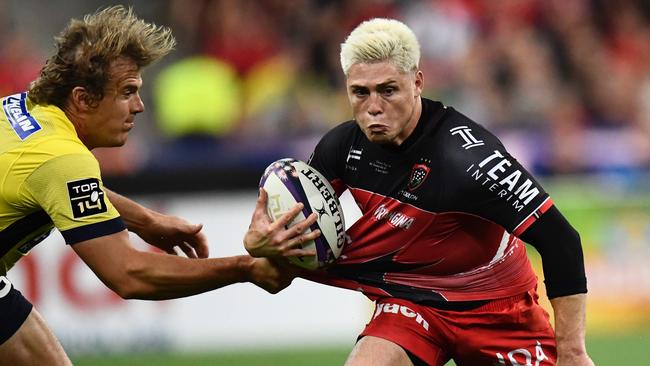
Can you tell me about your new worldview on masculinity?
I’ve been on quite a journey in the last five years. The biggest difference for me was I met a group of men in the UK, Saviour World, and they helped me transition from being a boy to a man. Everything we do from a physical, mental, spiritual perspective is to raise your vibration and start creating your own reality. Scientists have proven we’re not actually dense, we’re atoms vibrating at difference frequencies. We want to raise our vibration through training, diet, meditation and breathing to reach an equilibrium point.
Would it be fair to describe this as a new religion?
It’s not a religion. It’s just ancient knowledge that’s been passed down. Ancient civilisations have been living this way for thousands of years, we’ve just forgotten how to do it. If you start moving and working towards your main purpose in life – and I’ve found when you give back it enhances your life and others around you. That’s the main point of living. If I knew that when I was younger I could have avoided making some of the mistakes I made. But my journey has been my journey for a reason. To fight my way back to the top after hitting the bottom is my biggest achievement.
MORE GOLD COAST BULLETIN RUGBY
● GPS: GPS Rugby heavyweights pounce on elite GC talents
● TSS: Brumbies to unleash Gold Coast product on Reds
● REDS: Queensland wing duo could be Super Rugby’s best in defence
Have you fought your way back to the top, or is there still some fighting to do?
You’re always growing. I’ve got so much to go but that’s part of the journey. Every time you hit a new level you get more knowledge. That’s the whole point of this reality.
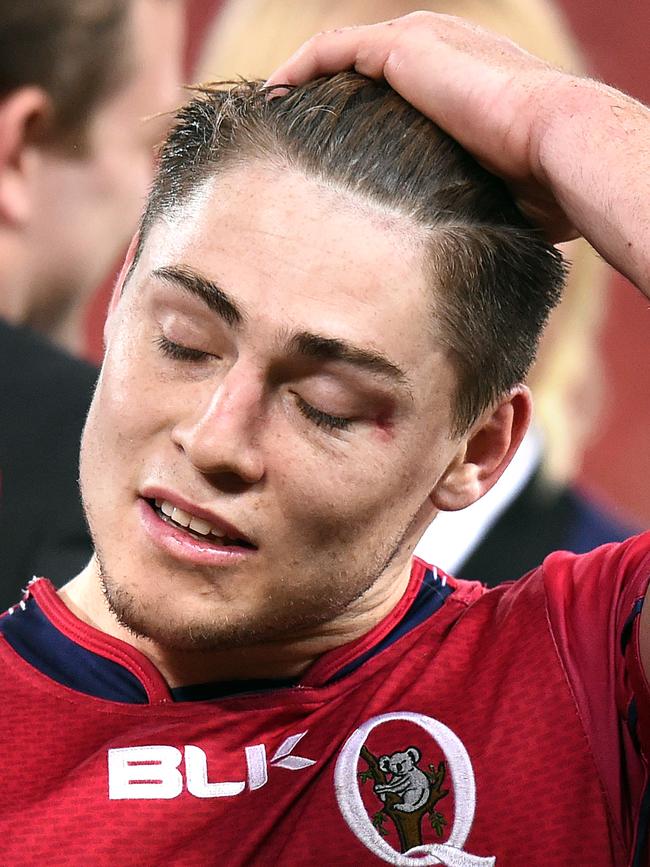
Did your last stint in Queensland in 2015 inspire this comeback?
That definitely played a part. I wanted to come back and be injury-free and be my truth and give the full version of myself but once I got injured that wasn’t to be.
Do people know what you were going through in 2015?
They don’t because I’m not the sort of person to let on. I was never the person to say, ‘I never made the World Cup because of this’ but my MCL was detached for the whole season. I couldn’t sprint or step off my left leg. But that was my pride as well; I should have got it fixed (surgically) straight away but I didn’t because I wanted to make the World Cup. My pride just went ‘yeah, I can do it, strap it up and in the important games I’ll turn up for it’. But that wasn’t meant to be.
What was your headspace like through that season?
I didn’t want to be there. I was only there because I wanted to make the Rugby World Cup. I had to play but I wasn’t enjoying rugby. If you don’t love your craft you’re not going to be rewarded or be given the energy to achieve great things.
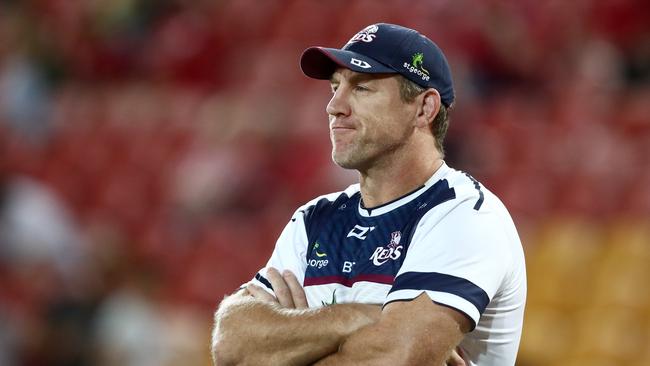
Brad Thorn has taken a hard-line stance against drug offenders in the past. What did he see in you to make him change his mind?
I’ve just been honest with him. Don’t get me wrong, I’m not a perfect individual and I don’t believe anyone is. I do what feels right to me and I try to do good in the world. But with him, I was just honest with where I’d been. I believe you can tell when people are lying to you so I told him what happened with these situations and put everything out there. I told him about the journey I’ve been on and that I wasn’t asking for anything beyond a chance to work hard for him.
Where does Thorn see you contributing best this season?
I’m not sure about centre or playing No.10 or No.12. Those are probably the positions as a team we see it happening but that depends on the combinations. Whatever flows the best. I’m excited to start playing around and creating and seeing what works. I’ve got a good understanding of how Jordan (Petaia) plays but I’m keen to get to know the other guys in the team and unlocking each other’s skills.
Has your time overseas prepared you to step into the flyhalf jersey if needed?
I’ve been overseas for five years, I’ve learned how to control a game. In some ways, game management is all it is over in Europe, whereas Super Rugby is more free flowing and suited to my game.
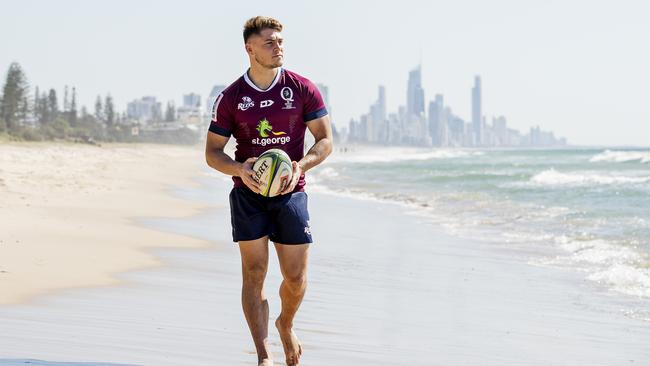
What are you most looking forward to in your return to Australian rugby this season?
I’m looking forward to playing Super Rugby again. The French competition is quite slow. There are exciting parts in it but it’s slower rugby and the UK competition is a lot more forward-dominated. I’m looking forward to playing free-flowing rugby. I’ve missed it.
Is there the talent in this Reds squad to go on and win Super Rugby in the coming years?
For sure. If we get the culture right, which it feels like they already have, the talent is definitely there. There’s a lot of young energy to work with. It feels like we’ve got a couple of level heads in the team so let’s see what happens. We have guys that work hard, some big ballcarriers like Lukhan (Salakaia-Loto) and Izack Rodda, but also our on-ballers are great and they’re enthusiastic.
MORE GOLD COAST BULLETIN RUGBY
● BOND: Sunnybank head coach joins Bond Uni as attack coach
● BOND: Bond Uni make history with launch of women’s team
● GATORS: True Alleygators will reap rewards as numbers boom
Do you have any regrets from how your journey has turned out?
It wouldn’t be human to not have hindsight but I don’t dwell on the past anymore. I’m at the point where I’m creating my own life and that’s all that matters, being present in this moment right now and looking ahead. I’m ready for a big few years with Australian rugby. I’m feeling strong and ready to do some damage with the team in 2020. And I’m excited to introduce Queensland to the new James O’Connor.

